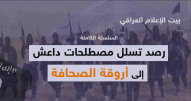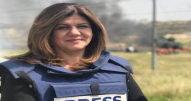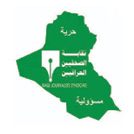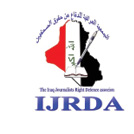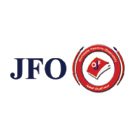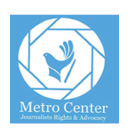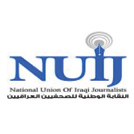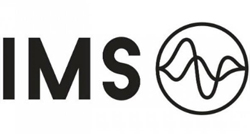Political interests, racial and ethnic tendencies, strike the press coverage for minorities
الصفحة الرئيسية > تقارير الرصد الإعلامي > Political interests, racial and ethnic...
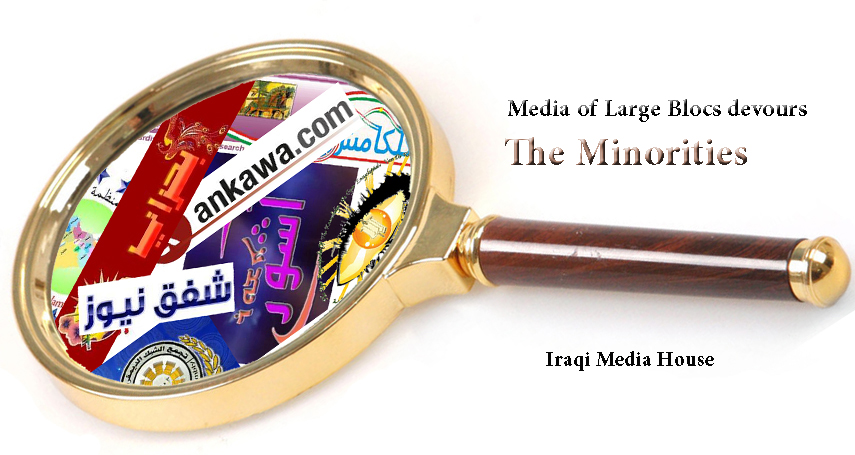
Tenth Media Monitoring Report
Media of Large Blocs devours the Minorities
Political interests, racial and ethnic tendencies, strike the press coverage for minorities
Our tenth report ''observatory'' observes the minority issues in Iraqi media, through examining the reports published by a selection of local media websites about security, political events, as well as social and cultural subjects related to the identity and rights of those religious, national, and ethnic groups.
The observatory operates according to conclusions and provisions that were presented by local media to characterize those groups.
Keywords
This observatory contained some keywords such as "Shiite media - Sunni media - Kurdish media," which used only for monitoring and categorising purposes.
Minorities Rights
Minorities have a group of rights called ''Special Rights’’ that aim to preserve their existence, identity, and collective specifications.
Article 27 of the International Covenant on Civil and Political Rights says ''In those States in which ethnic, religious or linguistic minorities exist, persons belonging to such minorities shall not be denied the right, in community with other members of their group, to enjoy their own culture, to profess and practise their own religion, or to use their own language''
(Source: human rights, minorities rights, fact sheets of Human Rights, Centre for Human Rights, United Nations, Geneva).
Monitoring sample: Large Blocs competition and disruption of coverage
Faili Kurds
Faili Kurds inhabit border areas between Iraq and Iran, from the northern areas ''Jalawla, Khanaqin, and Mandali’’ to ''Ali Al Gharbi'' to the south, bypassing ''Badra and Jassan, Nu`maniyah, Azizia'; most of those areas are located in ''Wasit'' province as well as ''Maysan and eastern Diyala'' provinces.
Iraqi media treated Faili Kurds according our observatory, by a varying relative degree of selectivity:
Shiite Media
Faili Kurds formed an important part of narrative essays on injustice adopted by Shiite parties before and after 2003, as it is rare that a news website belongs to any Shiite political faction be devoid of mentioning Faili Kurds, as an embodiment of their history starting with skepticism on their Iraqi citizenship, ending with concealing hundreds of thousands of them, and due to what this ethnic Shiite minority has suffered of displacement, property confiscation;
However, as prevailing the Shiite parties and political blocs refuse to approve the recognition them as a ''Kurdish'' ethnic minority in order to confer their right to parliamentary representation according to the ''quota'' principle, like Christians, Shabak, and Sabean, while various statistics emphasize that the population of Faili exceeds the Sabean enumeration.
Some Iraqi media were very interested in th outstanding Faili issues, for example property disputes, citizenship rights, as the new Faili generation that was born in the exile still deprived of citizenship and practicing political rights.
Sunni Media
Faili Kurds minority is rarely mentioned in Sunni media, which did not absolutely address their issue of displacement, only in few occasions and in terms of justification, and sometimes considered as "foreign community" belongs to a country involved in the war with Iraq.
A simple exceptions can be traced through by using the key word "Abdul Samad AlZarkushi" a leader of a Faili Kurd clan residing in Diyala province, and was named among the defendants in ''Musab bin Omair mosque'' and Parwana massacres, otherwise, Faili minority do not fall within Iraqi Sunni media concerns.
Kurdish media
Kurdish media consider Faili issue of displacement a symbol of suffering of Kurdish nationalism with successive Iraqi governments, as the media of various political references are full of headlines that remind of plight of displacement for more than 600,000 ''according to Kurdish media sources'' Iraqi citizens on the pretext their belonging to "foreign origin" and dropping their nationality, stripping their belonging identities and the rest of their documents, as well as looting their properties, in addition to concealing more than 20,000 men;
Kurdish media consider this period as the first phase of "Anfal" battle which was carried out by Baath regime at the end of eighties.
Turkmen
Turkmani population existence areas extends from ''Tal Afar'' in northwest ‘‘Badra and Al Azizia'' in Kut province, east-central of Iraq, and most whereabouts their presence is northern Iraq, near ''Kirkuk, Mosul'' and ''Erbil''.
Kirkuk province considered as the heart of Iraqi Turkmen community; the majority of them embrace Islam and divided into two parts: around 50% Sunni Muslims and Shiite Muslims are about 50% too.
Shiite Media
Like Faili Kurds, the Shiite Turkmen representing a part of the novel persecution in Shiite media where Turkmens suffered especially in the city of Kirkuk and its outskirts of former regime's policies through the internal displacement, which collectively last year repeated when hundreds of thousands of Shiite Turkmens were forced to leave their homes in the city of ''Tal Afar'' and some areas of provinces of Salahuddin and Kirkuk, to escape the massacres committed by the terrorist group ISIS against minorities in Nineveh province after the tenth of June;
Thus nearly 250 thousand of Turkmen were excluded of their national environment, what increased their integration with the communal space which ''Unlike Faili Kurds'' implicitly acknowledged their political rights, they were granted four parliamentary seats and post of Minister of the share of Shiite alliance in the government.
Shiite media focused for years in following up news and developments in the security situation around the Shiite Turkmen minority grouping in Kirkuk, Salahuddin provinces, and disapproving the terrorist attacks against them as well as the government's inability to protect them from the frequent targeting;
But after the fall of city of Mosul and Tal Afar the largest Turkmenian gathering in Iraq then the blockade which hit Amerli town by ISIS, Shiite media focused on the coverage of role of Turkmen within various factions of the popular crowd forces, and symbolism of breaking the siege of the town after the steadfastness for several weeks, and some blocks claims through their media for granting Shiite Turkmen security and military positions, in addition to the charges declared against Kurdish forces in collusion with ISIS in the displacement of Turkmens from their towns of "Tuz" and "Tal Afar", within the context of systematic persecution against Shiite Turkmen.
Sunni Media
Although Sunni Turkmen make up 50% of the census of third national in Iraq, but their representation across the Iraqi Turkmen Front internalized within ''previously: Ethnic List, Currently: National Forces Union'' put both Shiite and Sunni Turkmen in the routine concerns of Iraqi Sunni media.
Kurdish media
Kurdish media reflect a long history of tense relations between Kurds and Turkmen, especially in the province of Kirkuk, disputed between Baghdad and Erbil, and what made matters worse the involvement of number of Sunni Turkmen of Tal Afar city within the ranks of ISIS and the emergence of Turkoman names within the first row of the terrorist group, which has waged an ongoing war against the region for nearly a year;
Although the Kurdish leaders are trying to accommodate and reassure the third nation in Iraq, and the second in Kurdistan, through a torrent of sensitive statements, but Kurdish media headlines shows the nature of relations between both parties.
Shabak
''Shabak'' term is given to a population that lives in more than 35 villages scattered in various areas of northern Iraq, specifically in Nineveh province. The majority of them speak ''Bijlani Shabak'' language which is close to Gorani dialect.
Shabak are distributed in several villages in the districts of Mosul, Tal Afar, Hamdania, and sheikhan, as well as in some Iraqi cities like Baghdad and Erbil with large community.
After 2003, most Shabak villages became under the control of Kurdish Peshmerga, which is charged with Kurdifying those villages, also a large number of Shabak in Mosul city have been killed and displaced by armed groups.
After the setback of Mosul in June 2014, most villages of Mosul plain turned to dangerous areas, thus most of the population left their places fearing ISIS assault, and sought refuge in safer areas controlled by Kurdish Peshmerga;
Shabak representative in Iraqi parliament, ''Salim Juma'' called the international organizations to intervene to protect the villages inhabited by Shabak.
In 1977 the census of Shabak reached (57- 58) thousand people, due to their exposure to the Arabization by the government through recording some of them as Arabs and Kurds, thing that supports their current estimation which overcomes the old one with several hundred thousand.
Unlike Faili Kurds and Shiite Turkmen, the Shabak got the parliamentary quota seat for the province of Nineveh by means of Shiite National Alliance.
Shiite Media
Shiite media have focused throughout years on monitoring killings and ethnic cleansing which were suffered by Shabak minority in Mosul before and after being controlled by ISIS group, and the consequences of uprooting them from their original homeland, after decades of skepticism of their Iraqi origins, with a duplicate scene to Faili Kurds plight, what strengthen the evidence of risk of injustice on whole Shiite sect,
while, according to the nature of relation of each Shiite faction with Kurdish leaderships, media positions varied toward the complaints of Shabak representative in parliament about Kurdish forces attempts to confiscate Shabaks' political rights by considering them as part of Kurdish nationalism; in addition to frequent news on the involvement of number of Shabak minority to the formations of popular crowd.
Sunni Media
Despite the presence of Shabak in the province of Nineveh with the Sunni Arab majority, but Sunni media overlook Shabak minority completely.
Kurdish media
Kurdish media pay the Shabak minority same attention as that given to Faili Kurds, After years of coverage for terrorist attacks suffered by Shabak in Mosul and Nineveh Plain, and periodic claim to increase "quota" for Shabak in parliament, Kurdish sites moved to follow up their situation in southern cities where they fled after the tenth of June;
Our observatory noticed a criticise language to Shiite parties because of the dereliction with displaced Shabak who preferred to flee toward southern cities for sectarian motives, as some titles in Kurdish websites refer to a growing competition on the minority representation.
Sabean
The Sabean ''Mandaeans'' is the smallest minority in Iraq, where their enumeration was retreated from 70 thousand before 2003 to 10 thousand in 2015; most of them live in city of Baghdad as well as southern cities, they have one representative in the parliament elected by quota, mainly their behaviour is caution and courtesy toward Shiite, according to long experience of exposure to harassment by armed groups that some of which have been accused of bombing their Temple in Basra in mid-2006, in addition to restrictions of local authorities on their commercial activities.
Shiite Media
Shiite media interest in Sabean is clear, it often focus on the congratulations of Shiite community figures to Sabean community on their festivals, in exchange with initiatives by Sabean in suspending celebrating their religious festivals that coincide with Ashura season every year, as well as other aspects such as participation in ceremony of mourning to be held on the anniversary of death of Shiite imams, also issuing statements by their representatives solidarity against cartoons and invitations to burn Quran, without losing sight on news about insulting that threaten Sabean in southern cities in the context of worrying because of security situation's correlation between competing Shiite parties in the south.
Sunni Media
Sabean Mandaeans is completely absent from Sunni media coverage.
Yazidi
The majority of Yazidi community live in Iraq where they religiously associated with the Lalish land which is the direction of each Yazidis in the world. Yazidis statistics in Iraq range between 700,000 and 500,000 people, they are exist in northern Iraq, the two big blocks of them are in the city of Shaikhan northern Mosul where the shrine of ''Uday Bin Musafir'' is located, and in Sinjar on Syrian-Iraqi border, 80 kilometers west of Mosul.
In geberal they are distributed in
- Mosul: sheikhan district, Bashiqa, Bahzany, Shankal (Sinjar), Zummar, and Alqosh.
- Duhok Province: Sharia (Semel), Khank congregation, Bonn area
With the lawlessness that prevailed in Iraq after 2003 and the permeation of terrorist groups and their bloody campaigns targeting different groups and denominations, Yazidis paid a heavy bill as being continually targeted by those groups; they exposed to the second largest attack in the region, in August 14, 2007, where 800 people were killed when a truck filled with explosives stormed Qahtaniyah residential complex, in what is known as Qahtaniya bombings.
Following the fall of Mosul in June 2014 to ISIS group, Yazidi cities, especially Sinjar, were hit by attack and quickly been taken under the control of the terrorist group after withdrawal of Peshmerga forces, ISIS gunmen killed a large number of people and captured others, while thousands fled to Sinjar Mount.
Shiite Media
According to the common false idea among the population consciousness about Iraqi Yazidis link to Yazid bin Muawiya, and allegations and rumours about their worship of devil, Shiite media rarely focused on the affairs of that minority, which is mysterious to most Shiites;
Media coverage was limited on security incidents and terrorist attacks throughout the years, as well as representatives of the minority constant conflict, mostly against the governor of Nineveh, and sometimes against Kurdistan region, according to the reference of the partisan media.
The coverage reached its peak after the tenth of June, when Yazidis escaped from their homes and resorted to Sinjar Mount, where attention focused on the consequences of the invasion of ISIS gunmen to the home of Yazidi minority and subjected their men to killing and their women to captivity and trafficking.
Sunni Media
Yazidi minority is mentioned in Sunni Media according to context of routine coverage of Iraq’s security events without further analysis or opinions.
Kurdish media
Although Yazidi sect constitute approximately 1/5 of electorate mass of Kurdistan Alliance, but the constant limitation of the number of Yazidis Representatives to only 6 out of 60 deputies of the Alliance of Kurdistan raised questions in Yazidi environment about the future of community within Kurdistan Region, especially after the plight of displacement across Sinjar Mount and the inability of Peshmerga forces to protect Yazidis or even give them enough time to flee before ISIS attack, what led some Yazidi figures to form ''Chenkal -Sinjar- protection forces'' led by ''Haider Cho'', whose arrest by the Kurdistan Democratic Party forces raised a political crisis with his partner the PUK, and the Kurdish Media reflected the deep dissimilarity between the two major parties towards the emergence of Yazidi leaders who have relations with Baghdad, in terms of funding and weaponry, as well as the concern of religious discrimination with calls of Kurdish endowments to stop rebuilding Yazidi domes in liberated areas of Sinjar.
Christians
Christianity is the second largest religion in Iraq in terms of the number of its followers after Islam, the religion is recognized by Iraqi constitution, as 14 Christian communities are recognised in Iraq.
Christians are classified within several communities, some of them speak Arabic, while others speak various dialects of Syriac language, as well as Armenian language.
The largest church in the Middle East ''Immaculate Church' is located in Bughdida city in Iraq; Christians live in all provinces of Iraq but massively in Baghdad and Nineveh Plain area near Mosul northern Iraq, in addition to Dohuk, Erbil, Mosul, Basra, Amarah, Hilla, Baquba Habbaniyah, Kirkuk, and other places where their churches are located.
The number of Christians in Iraq was 1,400,000 in 1987, and after 2003 the scale started to reduce until reached 450,000 in 2013 due to the deteriorating security situation and direct targeting of their churches and communities by armed groups in addition to pressure of militias on their freedoms and trade.
They are represented by five deputies in Iraqi Parliament in accordance to "quota" granted to them in the last election law.
Shiite Media
Shiite Media persevered on courtesy of Christians in Iraq through publishing remarks by officials that confirm the importance of the community as a thoroughbred component in Iraq, on the side-lines of the usual congratulation on their religious events that usually their Churches declare suspending the celebration of them when they coincide with Ashura season or following security events that result a large number of victims; Also covering includes news of attacks against Christians in Baghdad, Kirkuk and Nineveh, and the political demands by their officials to form an independent province in Nineveh plain, on the other hand ignoring or publishing brief news on restrictions imposed on them in southern cities.
Shiite Media interest in Christians has reached to peak after the fall of Mosul, but did not get out of denunciation and condemnation of practices that emptied the city of Mosul and Nineveh plain of one of the oldest human groups, but still without following-up the situation of Christians in the rest of Iraq, including the Declaration of the Supreme Judicial Council of Iraq, in opening the dossier of seizing properties of Christians during the period from 2003 until the end of 2014, and the allegations of the involvement of militias in the case.
Sunni Media
Media interest confined for routine follow-up of news of Iraqi Christians, even the most extreme media never mention the Declaration of the Supreme Judicial Council in Iraq which opened the seizure of Christian’s properties during the period from 2003 until the end of 2014.
Kurdish media
Compared to the rest of Iraq, Christians have benefited from the control of Peshmerga on Nineveh plain since 2003 until June 2014, but conditions in city of Mosul remained deteriorate until they fled the city on the tenth of June.
Witness: standpoints on Minorities Media prospects
At the time that minorities' identity in Iraq are subject to power and control of major media groups, public opinion for national and religious minorities almost disappeared to a large extent.
Following, testimonies of Iraqi journalists and media figures about the extent of Minorities Media influence:
Mr. Dildar Shinkali, Yazidi media figure:
The main problems suffered by Yezidi media are partisan, regional, and absence of independency, adding that there is no independent Yazidi newspaper Yazidi, stressing on the need to open an independent Yazidi media organizations, in order to contribute in spreading news about the suffering of that component to the internal and external public opinion, pointing out that both formal and non-formal Iraqi media bear a part of such responsibility.
Formal, informal, and even independent media rely on Yazidi journalists in issues concerning this component, which is good, but unfortunately they choose those who follow political parties, and neglect the independent journalists.
Yezidi Media needs financial support, and to rely on experienced independent people, young talents, also provide media training workshops to create suitable bases for independent media within acceptable standards according to national level.
Mr. Rami Shaways, a Christian journalist:
The main problem facing Christian Media is the lack of craftsmanship in journalism, while Chaldean, Syriac and Assyrian media is still in its first outburst despite owning several satellite channels, radio stations, news agencies, websites and publications.
Christian Media depends on published news and rarely produces rich press materials or exclusive media coverage of an event or topic, thus it could not be prominent in delivering the real amount of suffering of those people.
A Part of the responsibility of the Christian Media weakness lies on Iraqi media in general, as large media deployed in the country have political and sectarian trends and tendencies which did not pay a serious attention to the suffering of Christians, after and before ISIS emergence, while the source of the important reports that interested in what happens to Christian component belong to Arab and foreign media.
In spite of the pessimism surrounding the talk about Christian media websites but there are some websites which began contesting news coverage without biases, and there is hope in being expanded but they need unconditioned financial support and human potential investment to create professional media organizations.
Mr. Saad Al Shabaki, Shabak media figure:
Shabak component is almost the less component in gaining moral and financial support compared to Christians and Yazidis that is why Shabak do not have any major media organization.
The absence of known media platforms like newspapers, satellite channels, radio broadcasts, made of social networking sites a primary means of deliver news related to Shabak, and public media in Iraq did not pay much attention to Shabak issues, but only in fixed frames without researches and investigations for their news.
Minorities Media problems are resulting from Media crisis in the country, the Iraqi media institutions fail in producing a real professional media unlike foreign institutions, due to lack of confidence between media and receiver ''citizen'' who started to distrust what Iraqi media outlets introduce.
The political failure, the absence of efficient cadres, and the increase of nepotism and clientelism phenomena in selection of journalism and media workers are all problems appeared during the absence of sober media.
Digital Monitoring Sample
Our Observatory monitored a sample of pro-small ethnic group’s sites in Iraq, and classified the contents of those sites according to the basic standards which are illustrated in the tables below:
Form of Minorities Websites in Iraq
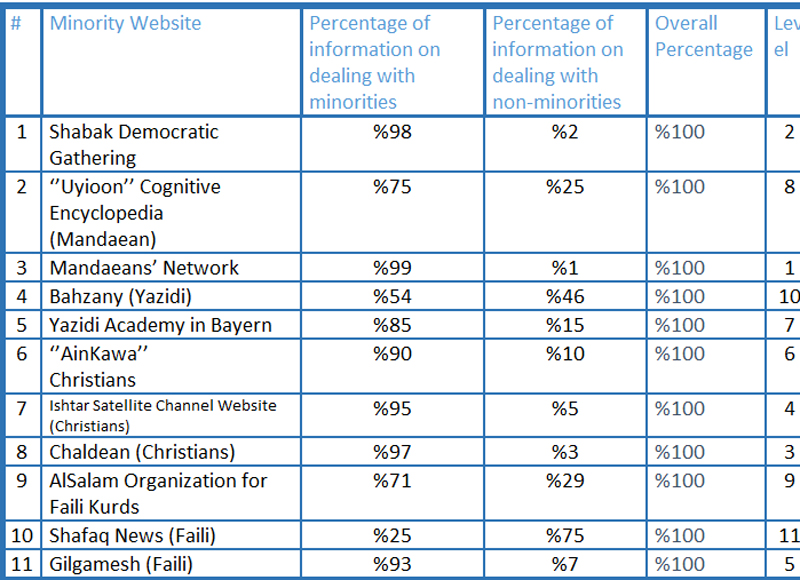
Coverage and information in minority positions (2)

Notes
Media of religious, sectarian, ethnic, and national groups are strongly competing on making minorities or small groups under their shades.
Contents of various media outlets show that the sympathy with minority issues are subject to political factors, and other times to religious and nationalist intolerance.
Large components in Iraq deal through media with minorities as a political or national part of them, as with Faili groups who are classified as Kurds and Shiite, at the same time, by two major groups in Iraq.
There is a duality in standards of press coverage represents wide social and religious groups, where sympathy and solidarity with minorities suffered of security disasters while condoning abuses carried out by armed groups represent a major group against minorities in some areas of Iraq.
Marked weakness and lack of influence in the media of minorities, for various reasons, including lack of funding, lack of experience, and political conflict between poles of the same minority.




